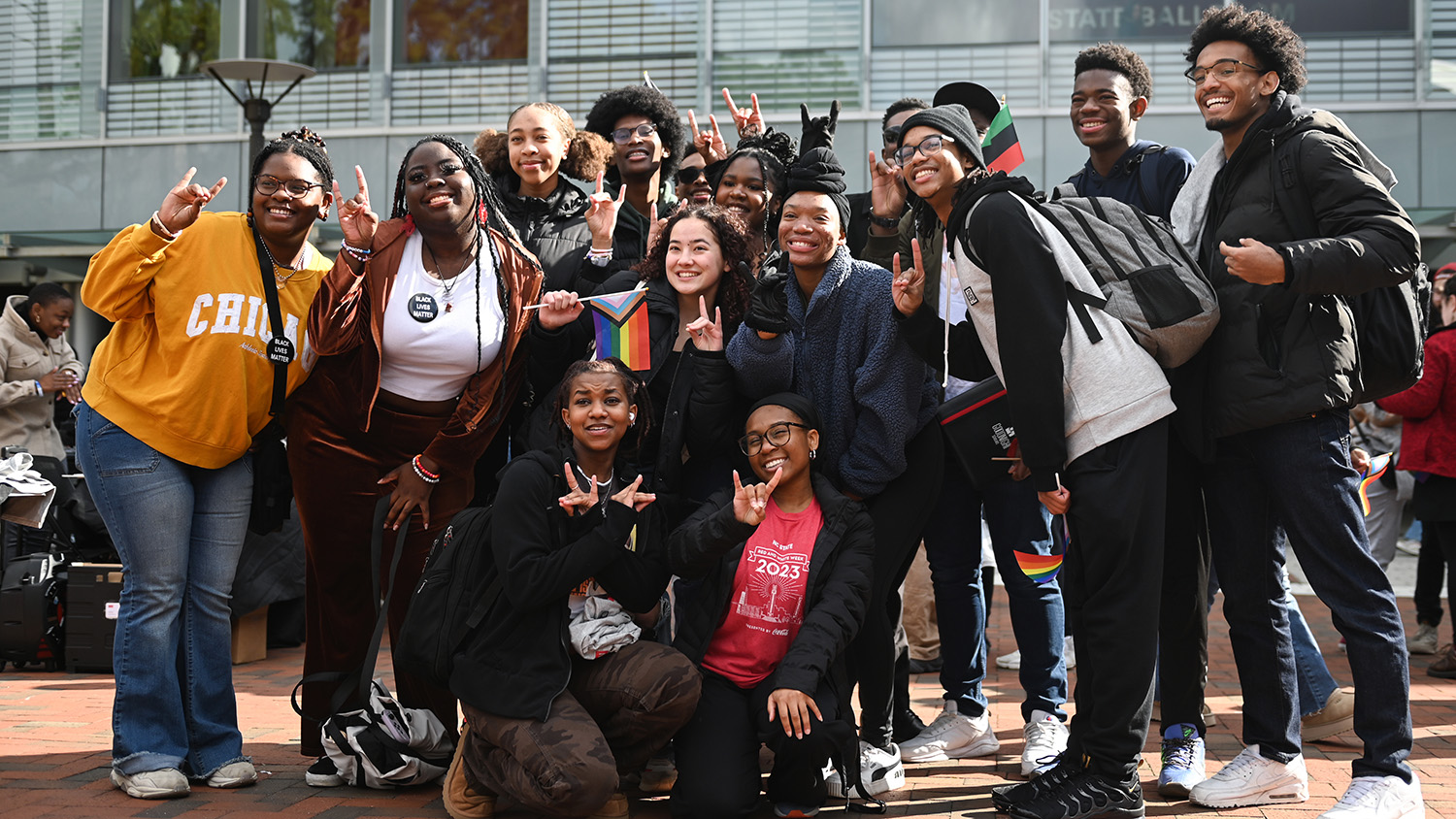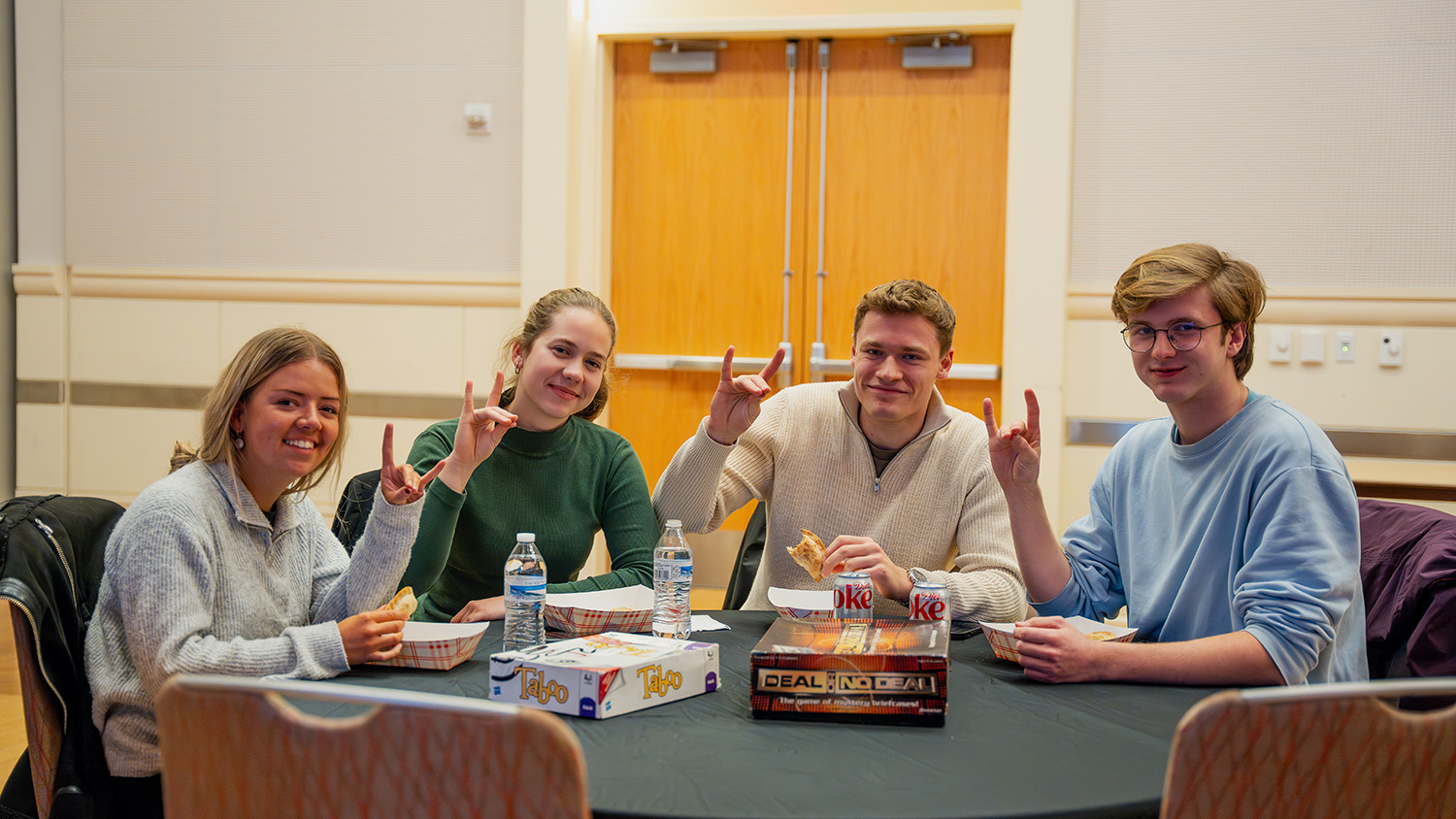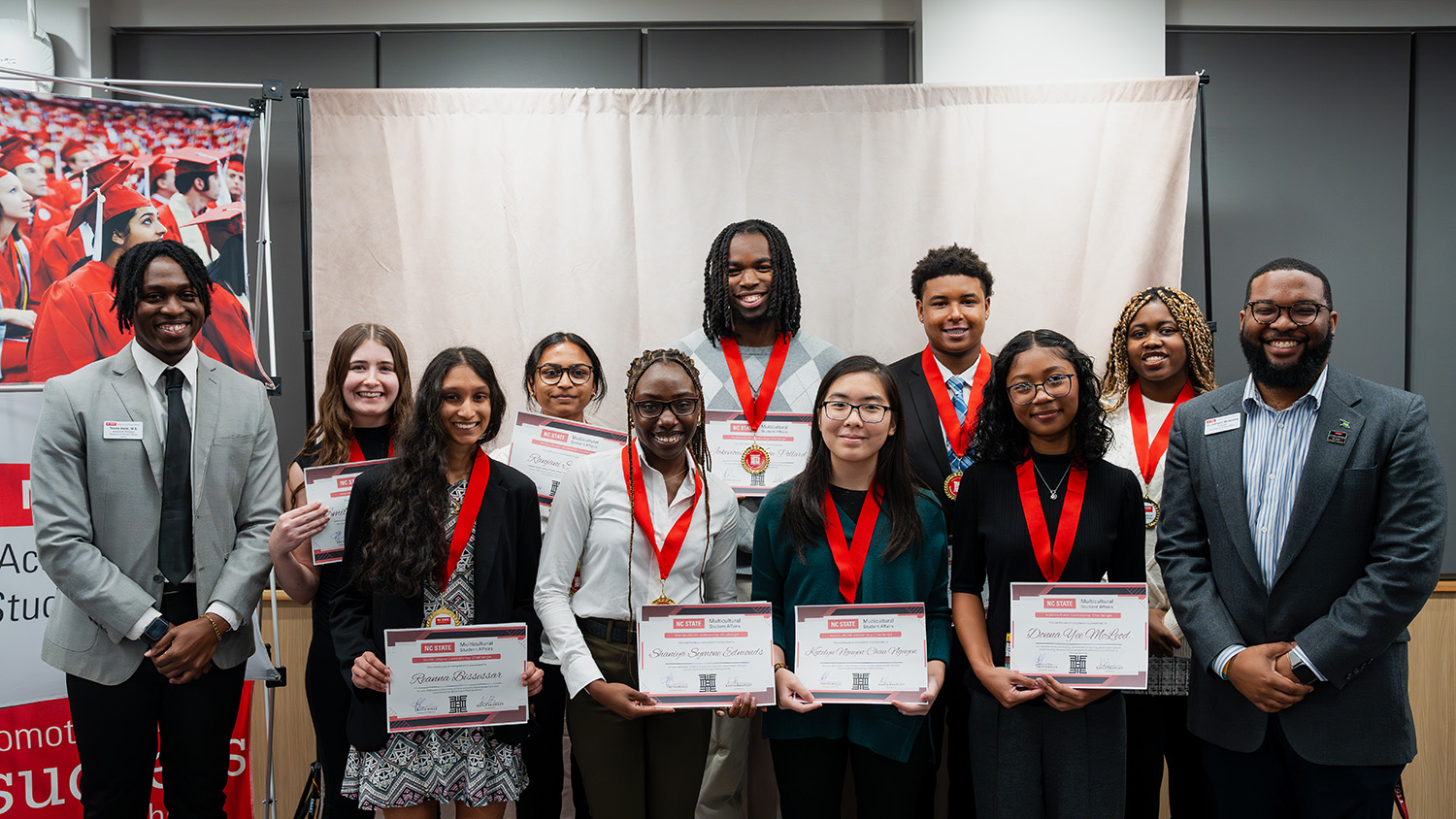It Takes a Village: Native Space
Native Space is a Living and Learning Village for Native students at NC State as well as those who want to learn more about and immerse themselves in Native cultures.
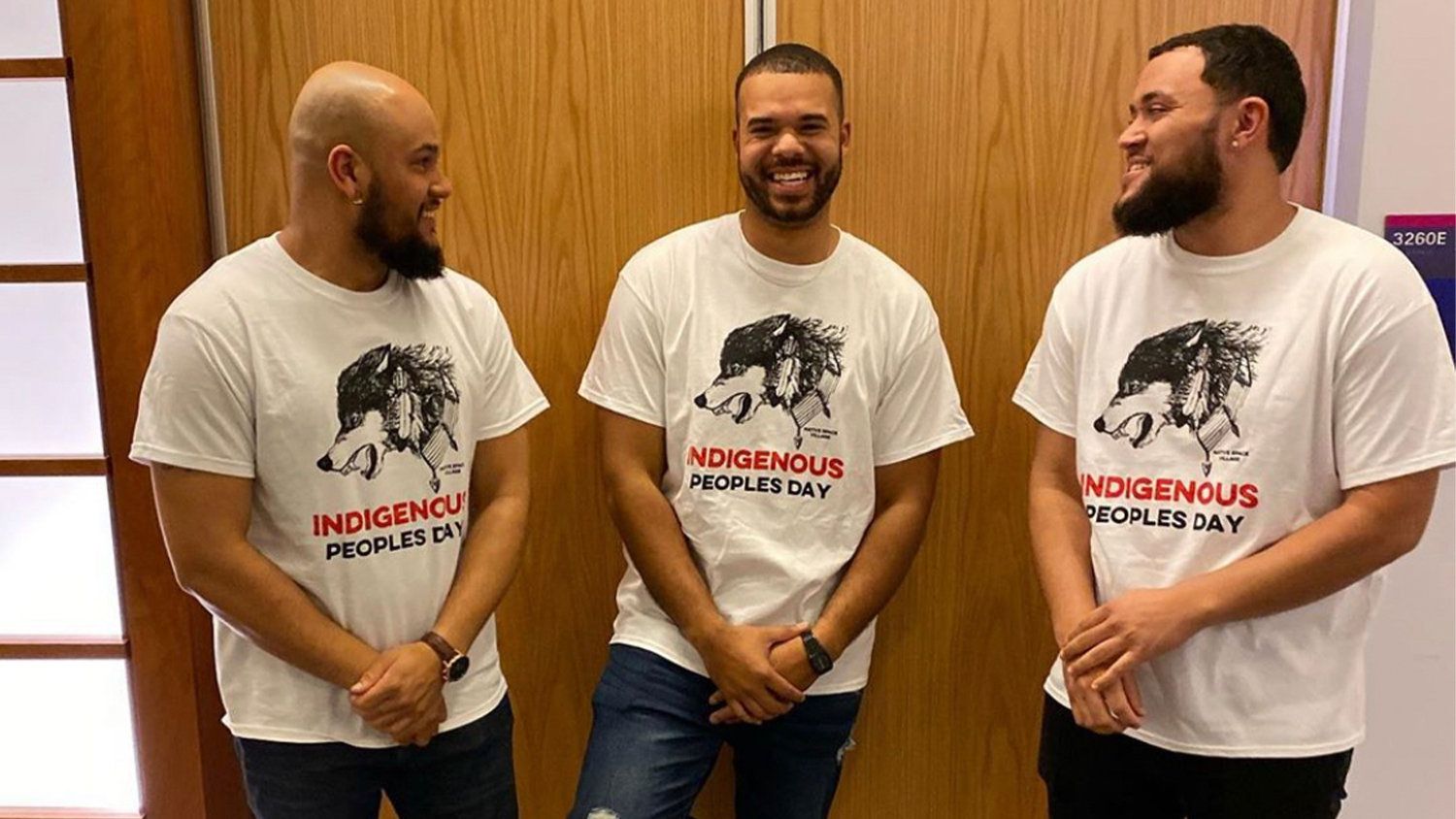
By Naz Santiago, DASA Marketing Intern
Native Space is a community — and identity — focused safe space for Native students and Native allies, or students who are interested in immersing themselves with knowledge of Native cultures. Founded in 2016, this community is perfect for Native students who want to feel connected to their culture, who want to feel seen and heard, who want to connect with their peers and who need a home away from home. The purpose of Native Space is to connect Native students with each other and help them build a larger community while also helping them find mentorship from faculty and staff.
In Their Own Words
Perks and Opportunities
Housed in Wood Hall, Native Space helps make NC State’s campus seem smaller for incoming Native first-years. This community provides Native students with the tools and a platform to advocate for themselves. It also helps students foster connections with other Native organizations such as the Native American Student Association (NASA) in order for them to continue building their community and expanding their network for when they graduate from NC State. This village also gives students the support and resources to continue to improve the environment for Native students as well as bring about positive change.
“Some of the perks and opportunities I’ve gotten to enjoy living in Native Space is that I get to be with other Natives and educate others on my experiences and learn about their experiences as well,” said Lee Tartaglia (history ’25), a resident of Native Space and member of the Lumbee Tribe. “You get a better understanding of different stories whenever you’re surrounded by them.”
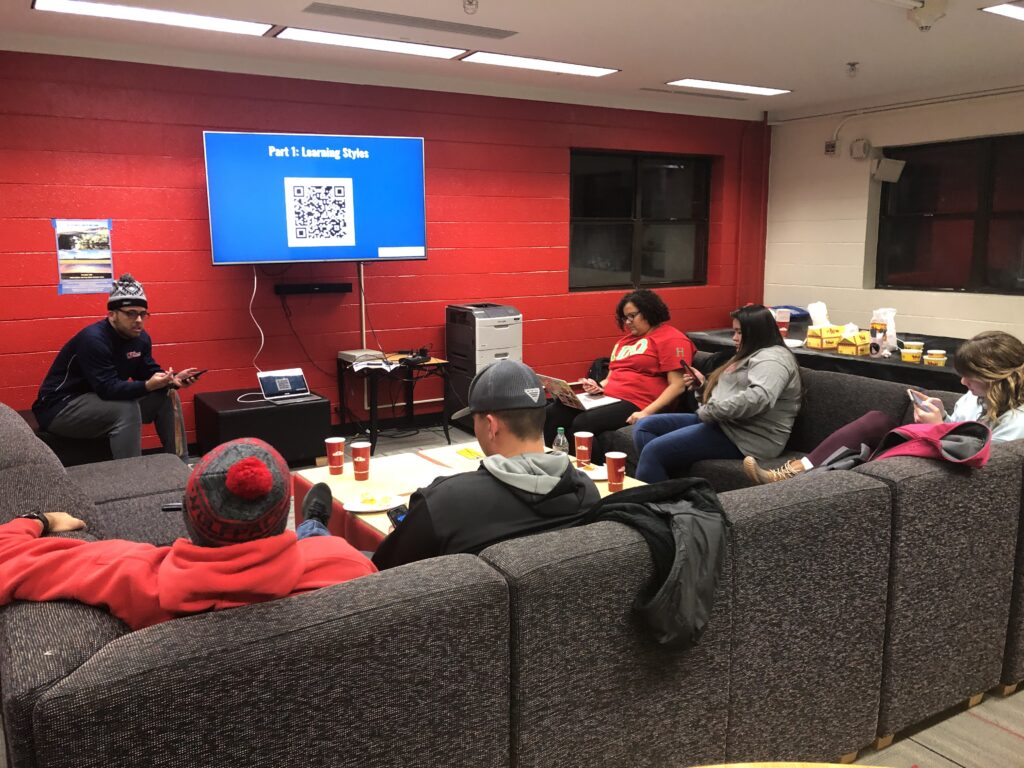
Gavin Bell, assistant director of Multicultural Student Affairs, got involved with Native Space while pursuing his master’s degree at NC State in 2019 and has continued to help organize and participate in Native Space initiatives since. Prior to the COVID-19 pandemic, Bell traveled with Native Space residents to Washington, D.C., where they were able to learn about different Native groups from all over the United States and North America.
“We were able to have a lot of intimate conversations on that trip that we couldn’t have in the same capacity on campus,” Bell said. “We talked about a lot of the issues in our community, whether that be poverty or mental health, or the pressures that you feel as a Native student coming up here to succeed for your family, or for your people.”
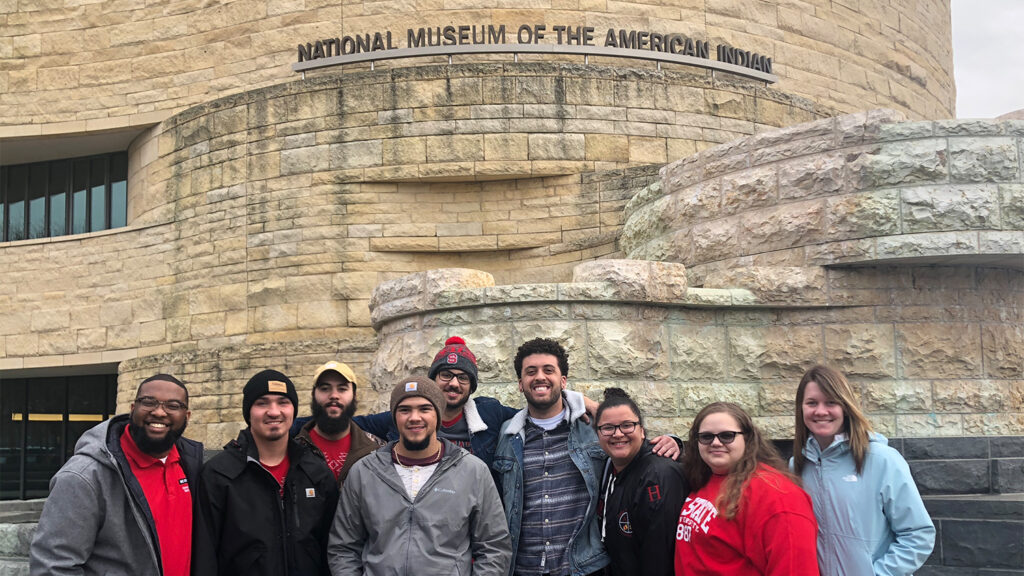
Native Space has also provided members with resume writing workshops, social programming, academic and professional development workshops, culture sharing and tabling events as well as events that help students connect with mentors. So far this year, Native Space has held two movie screenings, and more programs and events are in the works.
Native Space students and staff hope that membership continues to grow, and they invite all students to get involved in their programming.
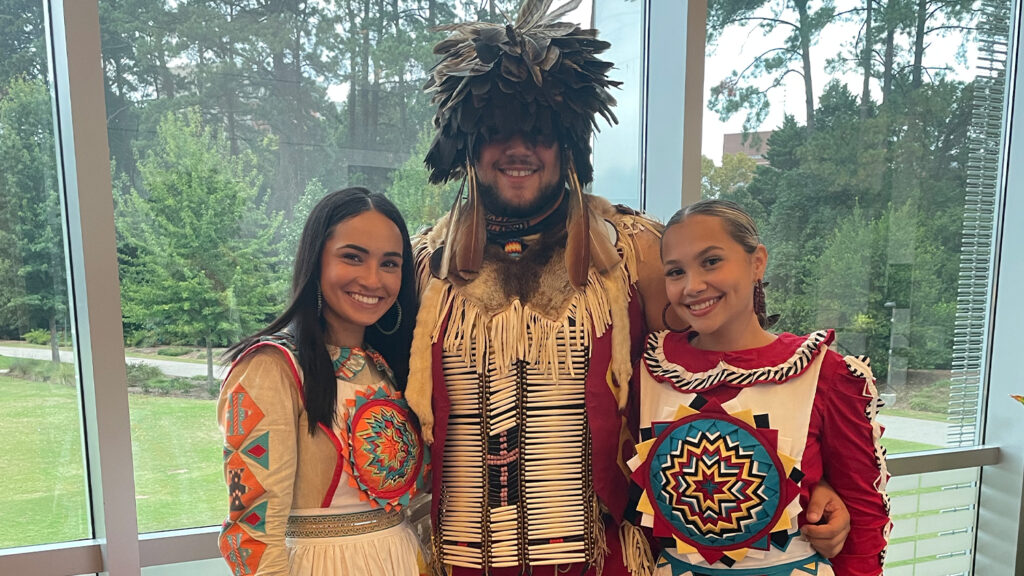
“I would like to see Native Space become a village centered around mentorship,” Bell said. “My hope is to create a bit of a larger network with the village that goes beyond just first-years coming in for one year and then leaving… I want students to remain involved in the village so that when future first-years come into the village and try to navigate their spaces on campus, what they are into and what their passions are, I want there to be upperclassmen who are reaching back and directly mentoring and advising those students.”
“I hope for Native Space to become a lot bigger,” Tartaglia said. “I’m hoping that we can really grow population-wise and that we can really build our community.”
How to Join
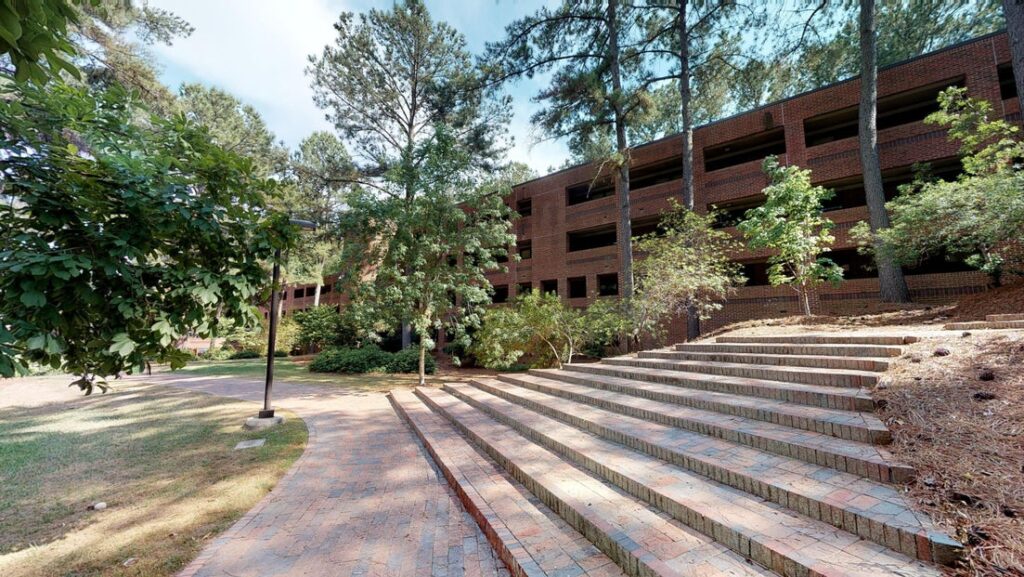
Incoming students who identify as Native on their application to NC State automatically receive information about Native Space and other support programs for Native students on campus. The village is also open to any student wanting to learn more about and immerse themselves in Native culture. Applications for NC State’s Living and Learning Villages open in February. Learn more about Native Space here, and learn about the application process here.
